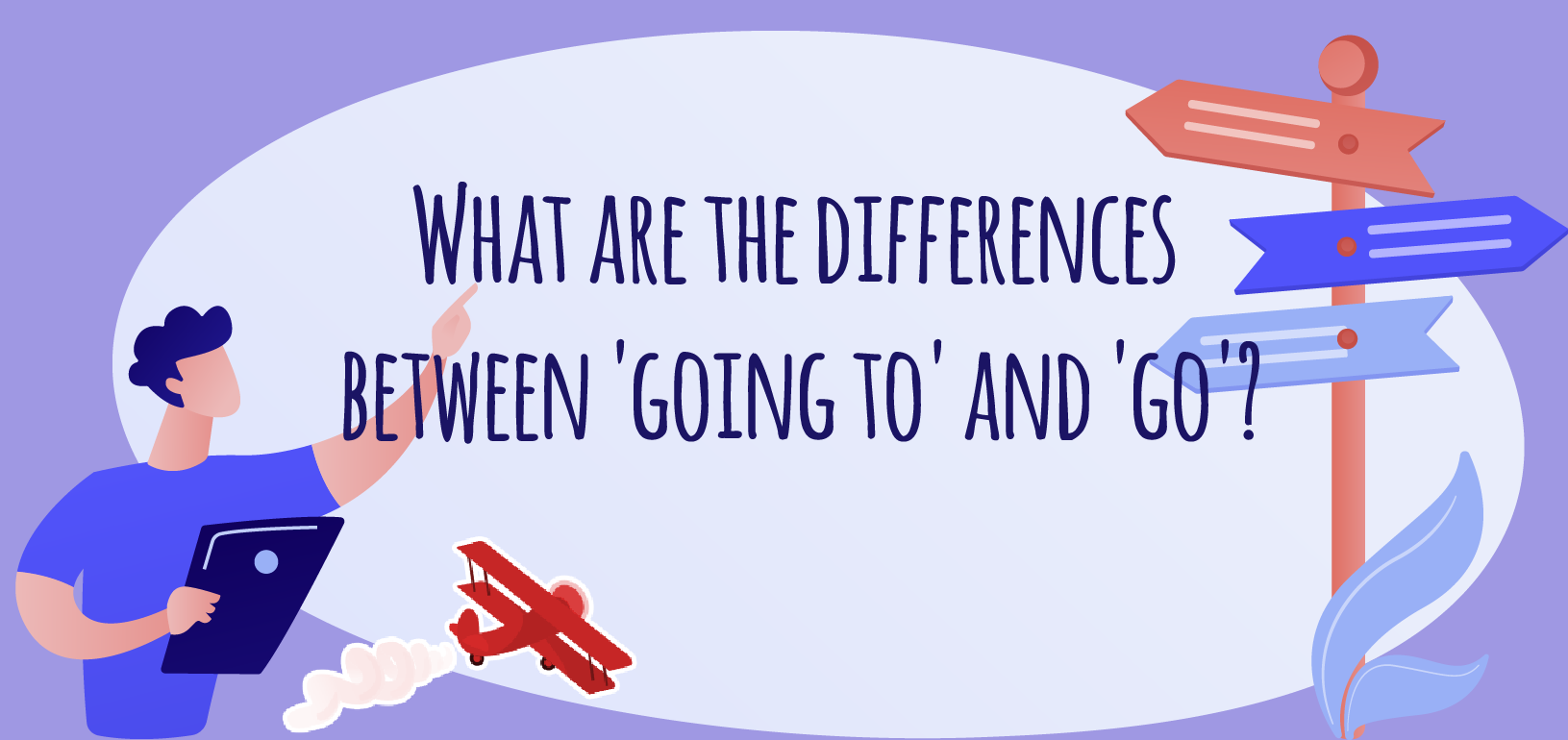What are the differences between ‘going to’ and ‘go’?

Going to and go
INDEX OF CONTENTS
- How is it formed?
- There are two uses of this tense
- The difference between ‘will’ and ‘going to’
- The difference between ‘I go’ and ‘I’m going’
- Examples of GO followed by gerund or infinitive
In this article we are going to explain everything that concerns the configuration of the future with going to . In this sense, it can be said that we use going to when we know with some certainty what is going to happen. And, following this same logic, when we talk about something that we have already decided to do
In other words, “going to” is used to express plans or forceful events for the future . In Spanish we translate this form of the future conjugated with the verb ir in future as auxiliary.
How is it formed?
Affirmative
subject + verb to be (conjugated in present tense) + going to + verb
- I am going to buy a car
(yo voy a comprar un coche)
- She is going to buy a car
(ella va a comprar un coche)
- They are going to buy a car
(ellos van a comprar un coche)
Negative
subject + verb to be in negative (conjugated in present) + going to + verb
- I am not going to buy a car
(yo no voy a comprar un coche)
- She isn’t going to buy a car / She is not going to buy a car
(ella no va a comprar un coche)
- They aren’t going to buy a car / They are not going to buy a car
(ellos no van a comprar un coche)
Interrogative
verb to be (present conjugated) + subject + going to + verb
- Are you going to buy a car?
(¿Vas a comprar un coche?)
There are two uses of this tense
To express previously considered decisions, plans or future intentions . When we say “I am going to do something” it means that we have decided to do it, our intention is to do it.
- Tomorrow I’m going to visit my aunt
(mañana voy a visitar a mi tía)
- We’re going to buy a car next month
(nos vamos a comprar un coche el mes que viene )
When we see that something is going to happen because it is very evident (predictions based on what one sees)
- Look at the sky. It’s going to rain
(mira el cielo. Va a llover)
- It’s ten o’clock and you’re not ready. You’re going to be late.
(son las 10 y no estás lista. Vas a llegar tarde)
The difference between ‘will’ and ‘going to’
Will
Will is an auxiliary, also known as a modal verb. This means that we use it to create a form of the verb, in this case, the future.
(Note : “will” will always be accompanied by a verb in its base form to form the future).
Will or going to refer to future events but are used in different contexts . While will is used to make promises and talk about spontaneous decisions, going to is more common to talk about making plans or intentions.
- It is also used to make promises, offers …
I’ll always love you
- It is used to talk about wills or desires and to make predictions.
I will meet you at 6 pm / I think it will rain this afternoon
Going to
It is generally used to talk about plans or intentions and premeditated decisions to be made in the future.
The difference between I go and I’m going
The difference between I go and I’m going (and between we go and we’re going, etc.) is:
- I go is used for common things, things that are done with a certain regularity
- I’m going is used for specific things: now and in the future
For example:
- I go to the cinema.
Without knowing more information, it could be I go to the cinema or I’m going to the cinema . The frequency or some reference to the time is missing. But if it is specified:
- Voy al cine cada semana.
I go to the cinema every week.
something usual
- Voy al cine mañana.
I’m going to the cinema tomorrow.
something punctual
More examples:
- Vamos de vacaciones dos veces al año.
We go on holiday twice a year.
something usual
- Vamos de vacaciones en agosto.
We’re going on holiday in August.
something punctual
Examples of GO followed by gerund or infinitive
- They go to the coast every weekend
Van a la costa todos los fines de semana.
- They’re going to the coast next weekend.
Van a la costa el próximo fin de semana.
- How do you normally go to work?
¿Cómo vas al trabajo normalmente?
- How are you going to work tomorrow?
¿Cómo vas al trabajo mañana?


